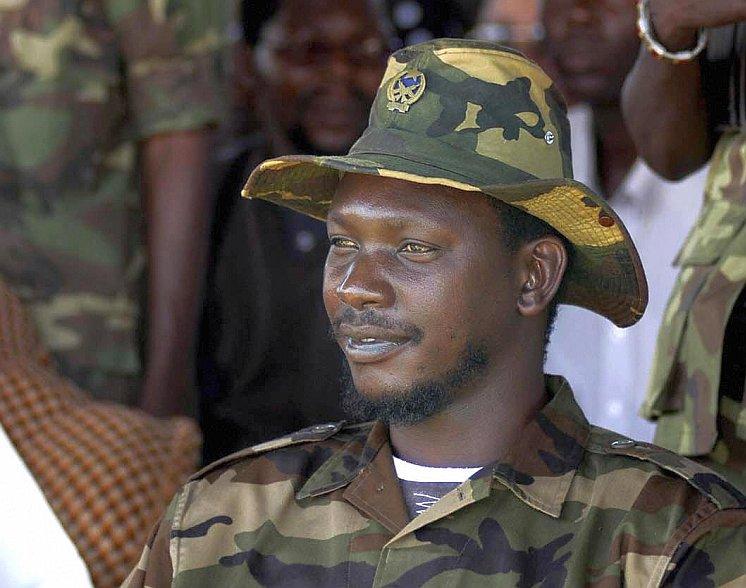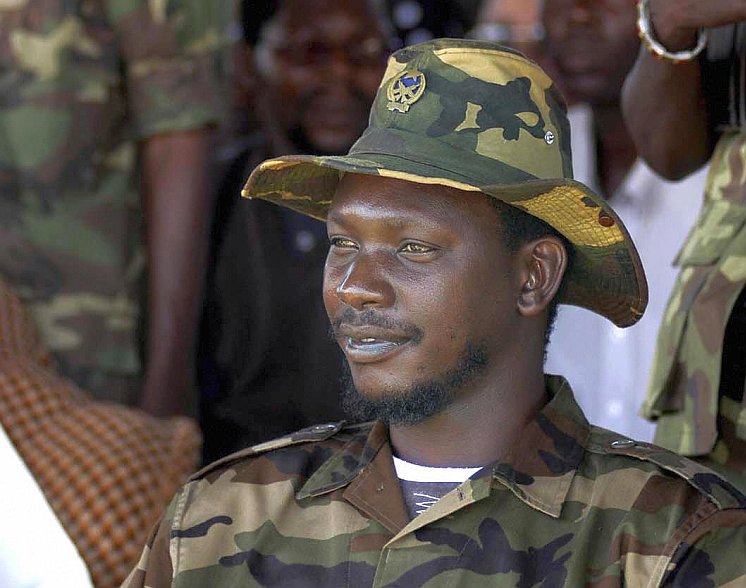In the first verdict ever delivered by the International Criminal Court (ICC), Congolese militia leader Thomas Lubanga Dyilo was found guilty of conscripting and enlisting child soldiers in the war in the Democratic Republic of the Congo (DRC) between 2002 and 2003.
The unanimous verdict by three judges was handed down on Wednesday in The Hague, Netherlands. Lubanga, 51, showed no apparent signs of emotion upon hearing the judgment. The trial began in January 2009, almost three years after Lubanga was handed over to the ICC. A sentencing hearing has yet to be scheduled but he could be given life imprisonment.
Rights groups have reacted positively to the verdict, as a signal to war criminals and rights abusers that the days of impunity are over. Human Rights Watch (HRW) called the verdict a “warning to rights abusers,” but also emphasized the need to go after Lubanga’s co-accused, Bosco Ntaganda, who is currently a general in the DRC army and a free man.
Lubanga was the leader of the Union of Congolese Patriots (UPC), an armed militia purportedly acting on behalf of the Hema people in the Ituri region in the northeastern part of DRC.
According to HRW, Ituri was one of the most seriously affected regions by the devastating Central African wars between 1998 and 2003, often referred to as the Second Congo War, which was fought in nine countries and claimed over 5 million lives. The Ituri conflict led to the violent death of at least 60,000 civilians, mostly in ethnically targeted massacres, according to HRW.
His crimes listed by the ICC in the press release accompanying the verdict include that he “exercised an overall coordinating role” and “actively supported recruitment initiatives” of children under the age of 15. He gave speeches to the local population and the recruited child soldiers and also employed them as his bodyguards.
Apart from the recruitment and use of child soldiers, the rights group also holds Lubanga and his chief of military operations, Ntaganda, responsible for many other crimes, involving massacres and sexual violence against both civilians and female child soldiers.
The long-awaited first verdict delivered by the ICC—an international tribunal established in 2002 as a result of the Rome Statute in 1998—is also viewed as a victory for the court, which has drawn criticism for its lengthy proceedings during its first decade, as well as for having so far only opened investigations in seven countries, all of them in Africa: DRC, Uganda, Central African Republic, Sudan, Kenya, Libya, and Côte d'Ivoire. Preliminary analysis of cases involving Colombia, Afghanistan, Georgia, and North Korea are ongoing.
Another criticism, more specific to the Lubanga case, is the fact that Lubanga has not been charged with the many other crimes he is suspected of. Michael Bochenek, director of Amnesty International’s Law and Policy Program, while positive about the verdict, also expressed disappointment over this point.
“The prosecutor’s office must review its limited investigation strategy adopted in the Lubanga case, especially in light of such decisions precluding victims from participating in trials and obtaining reparation. Lessons need to be learned for future cases,” he said in a statement.
Some also consider Lubanga a “small fish” in the grand scheme of the horrific Second Congo War, and want to see people at the highest political and military levels of Uganda, Rwanda, and DRC held accountable.
HRW, however, views him an appropriate ICC target, considering his position as the leader of a prominent armed ethnic group. Other, more well-known war criminals, such as the recently much-publicized Joseph Kony of the Lord’s Resistance Army, is also sought by the ICC, but remains at large.
Géraldine Mattioli-Zeltner, international justice advocacy director at Human Rights Watch, said in a statement that the verdict “should be a stark warning” to Kony, and that “African and international efforts to apprehend Kony and other LRA leaders wanted by the ICC should be urgently stepped up.”
Among the prominent figures sought or awaiting trial by the ICC are former Ivorian President Laurent Gbagbo (in ICC custody), Moammar Gadhafi’s son Saif al-Islam (apprehended but not extradited to the ICC), and serving Sudanese President Omar al-Bashir, who is considered responsible for the genocide in Darfur. The latter has actually visited countries that have ratified the Rome statute, but without being arrested.
As soon as Lubanga receives the verdict in French, he has 30 days to appeal. Along with the sentencing, the principles for reparations to victims will also be decided during the coming months.






